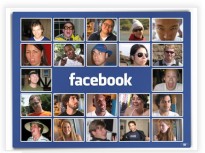The danger of middle school and high school students spending too much time on Facebook and other social media is getting an inordinate amount of attention lately, in part because several high-profile cases that reportedly involved cyberbullying ended in teen suicides.
Last month, a school principal in Ridgewood, New Jersey made headlines and earned himself a few television appearances after telling parents there is “absolutely, positively” no reason for middle school students to be on social networking sites.
The principal gave as his reason a feeling that middle schoolers are not psychologically ready for online bullying — including the kinds of anonymous attacks detailed in a front-page New York Times story today.
These are all real and valid concerns, but as someone who has observed teenagers attempting to do homework of any kind while involved in Facebook, texting and even video chats, I’m wondering why there aren’t more stories — and more education research — on just how much all the time spent communicating in front of screens impacts homework and reading.
The MacArthur Foundation launched a digital media and learning initiative in 2006 to explore how digital media are changing the way young people learn, as well as how they socialize and play. The foundation is trying to learn how young people change as a result of digital media and learning — and how educational institutions are changing as well.
There are also some studies on digital media and the gender divide. And psychologists are beginning to look at how technology changes the nature of friendships.
The one published study I could find on social media and academics looked at college students, so most likely the whole notion of social media is a bit too new for definitive conclusions. The small pilot study at Ohio Dominican University got some attention when it was released at the American Education Researchers Association convention in San Diego last spring and found that college students who use Facebook spend less time studying and had lower grade point averages than students who are not on social networking websites.
The notion of just curling up with a spiral notebook or a book seems too old-fashioned for teenagers, who can otherwise be interrupted easily from anything they are reading on a screen with, say, a search for a new movie trailer or an instant message about what they could be doing over the weekend.
Aren’t teachers, parents and others worried about all these distractions?




